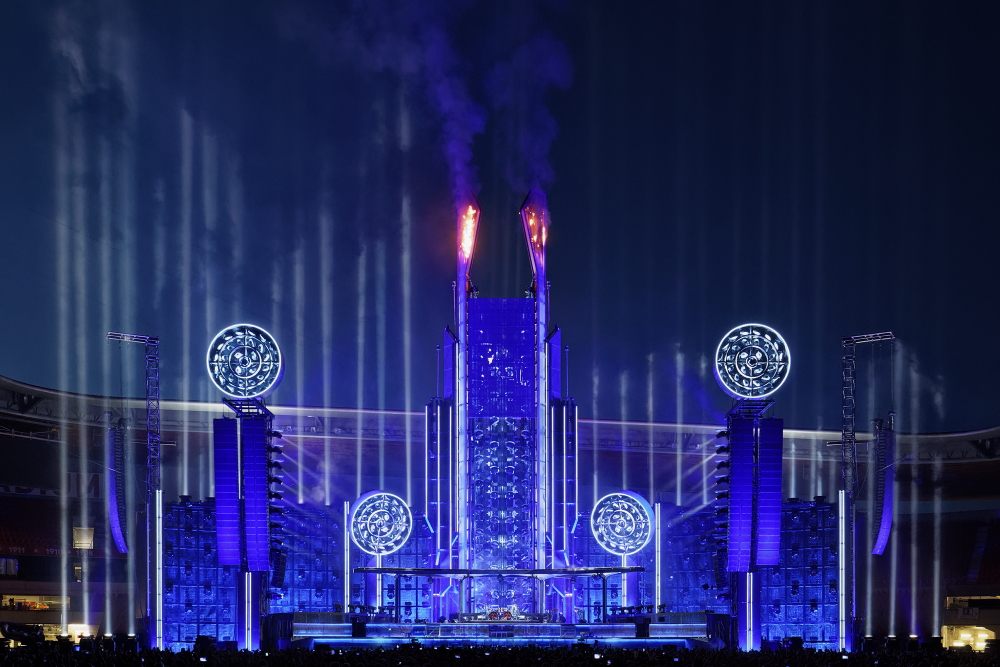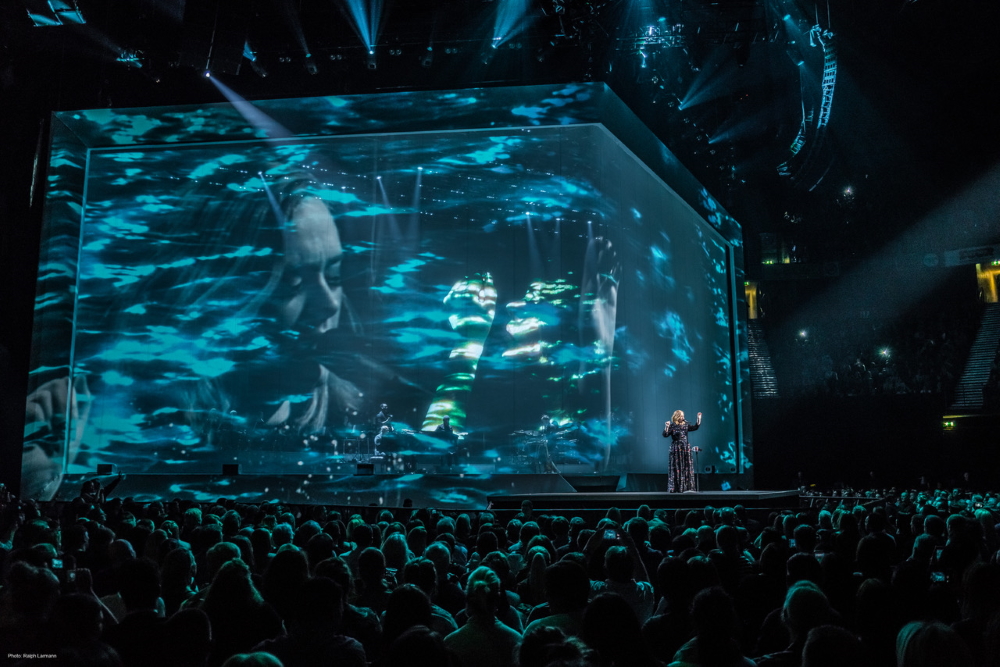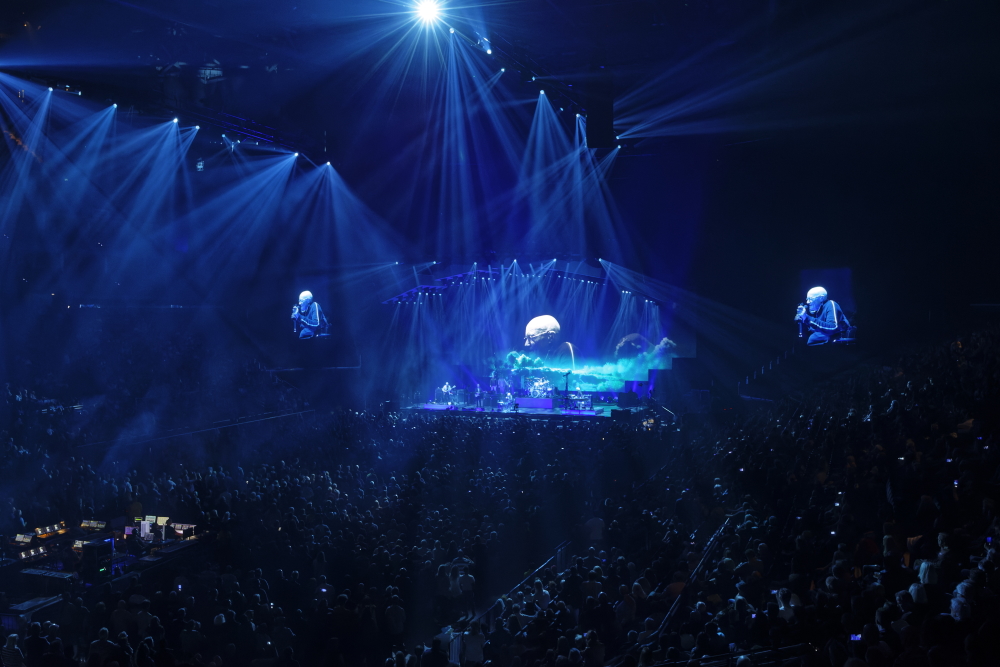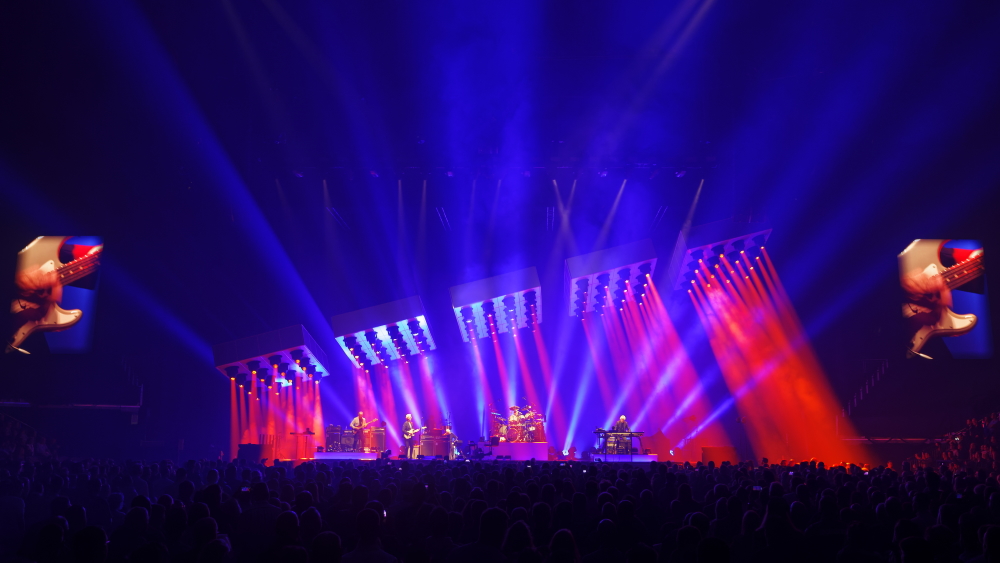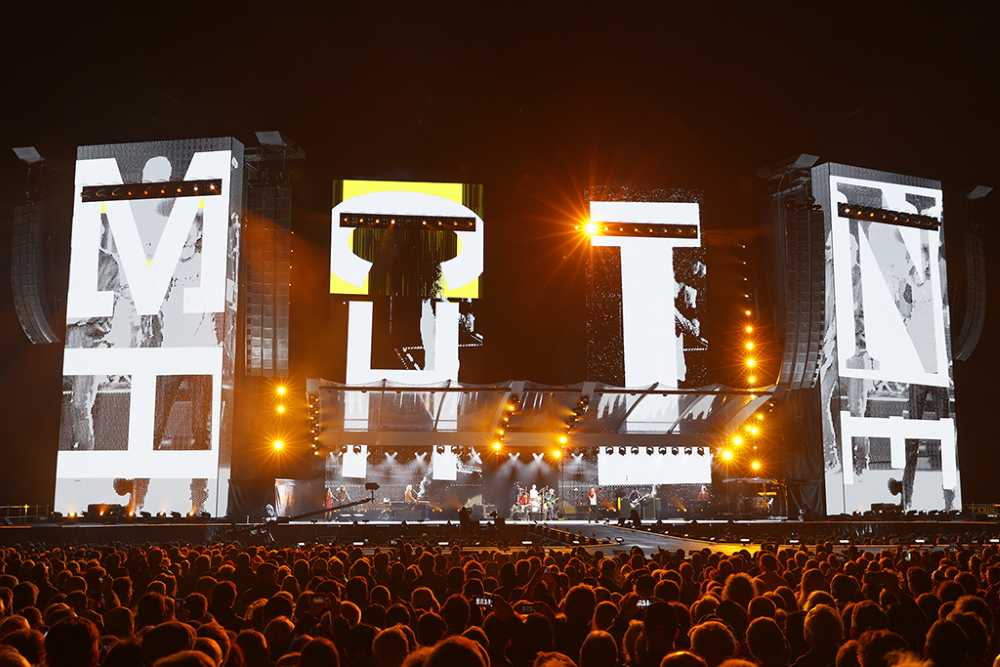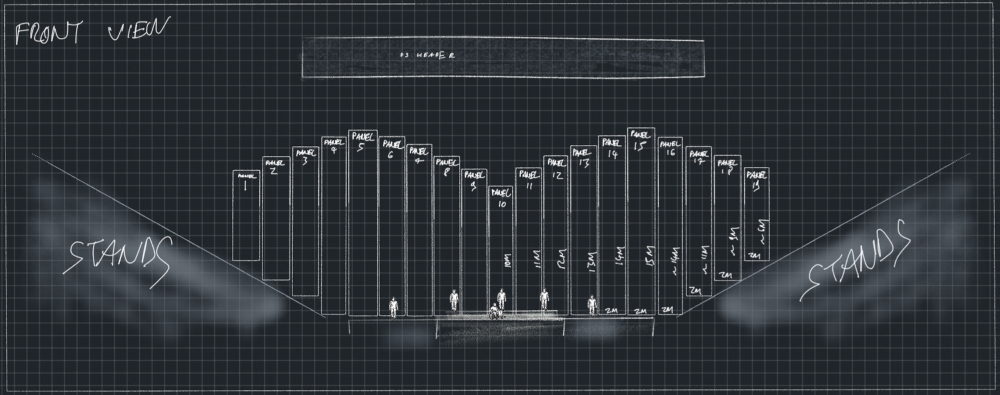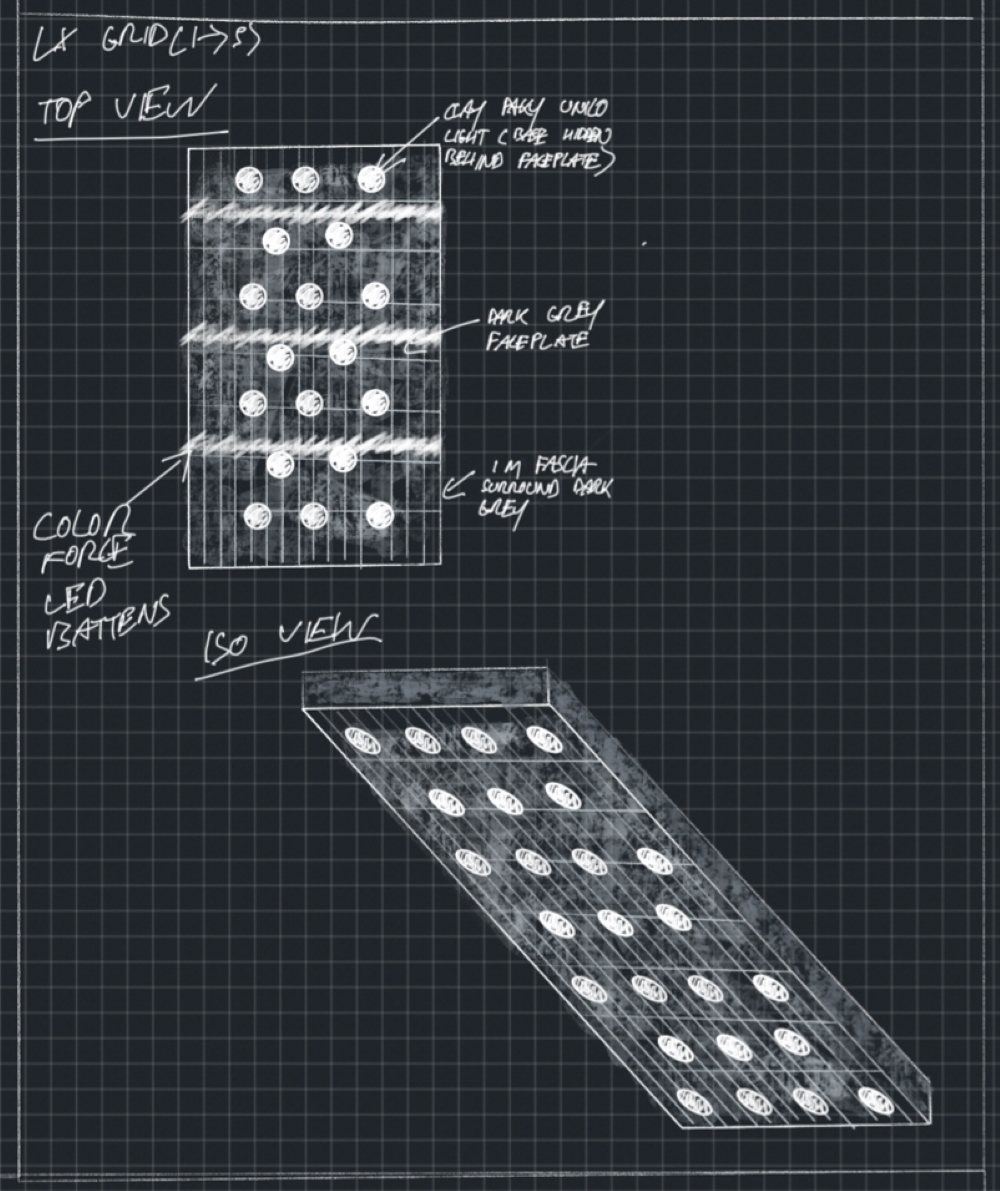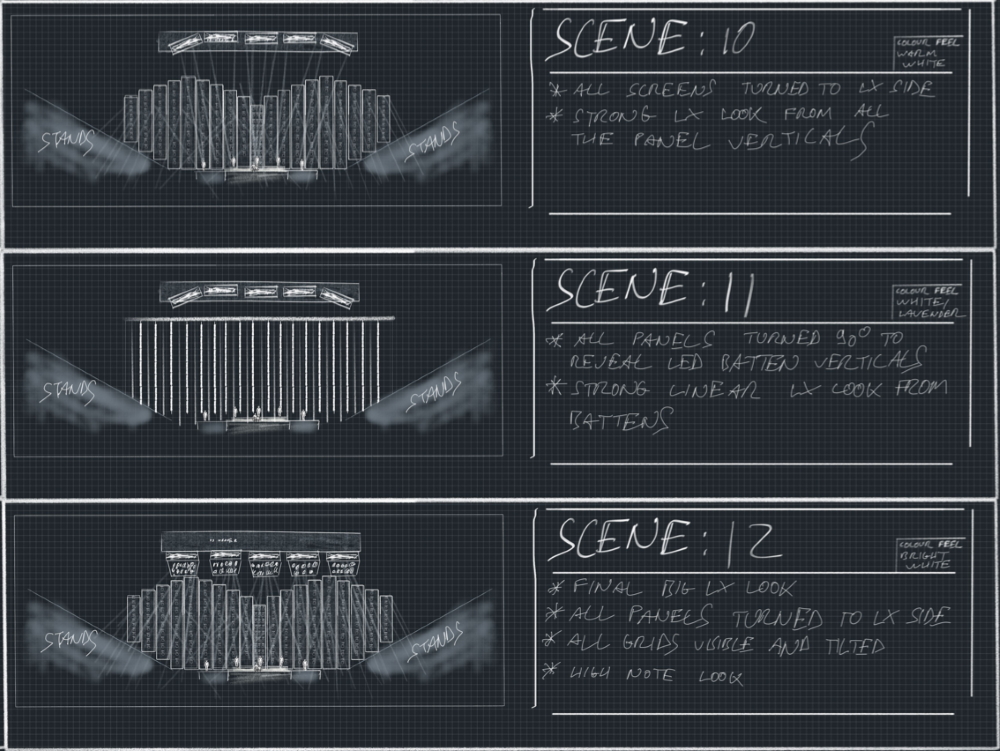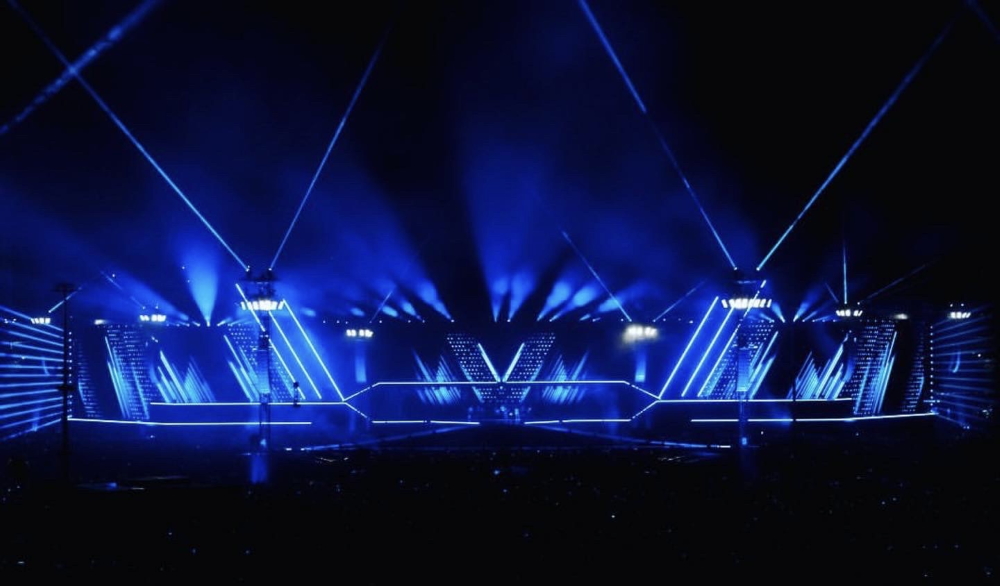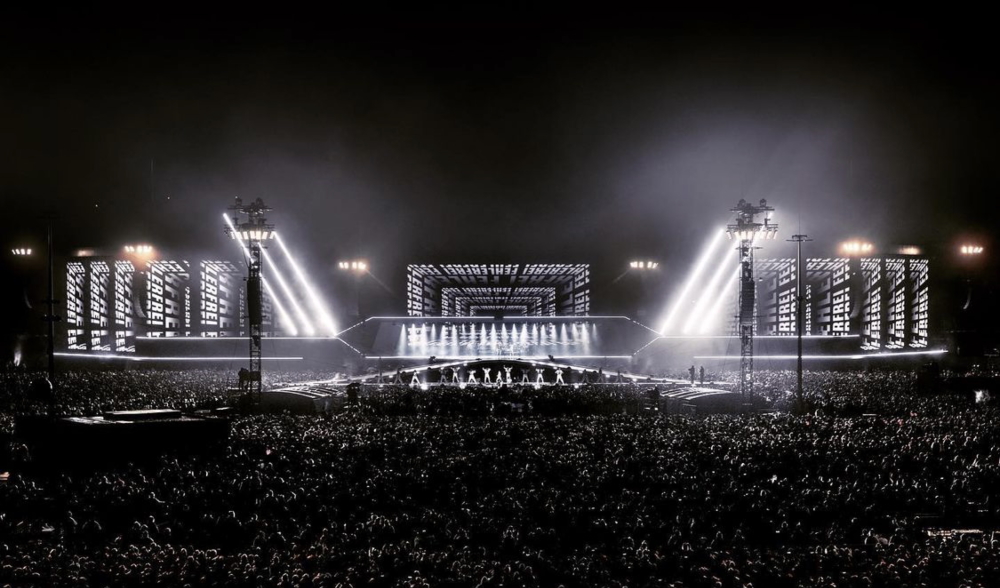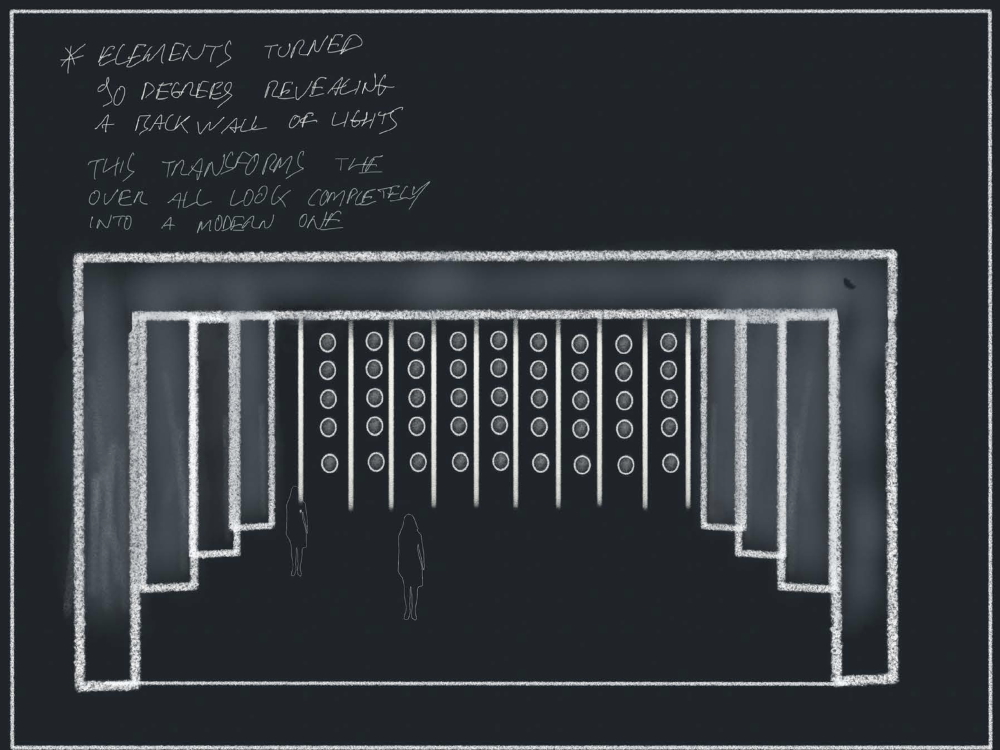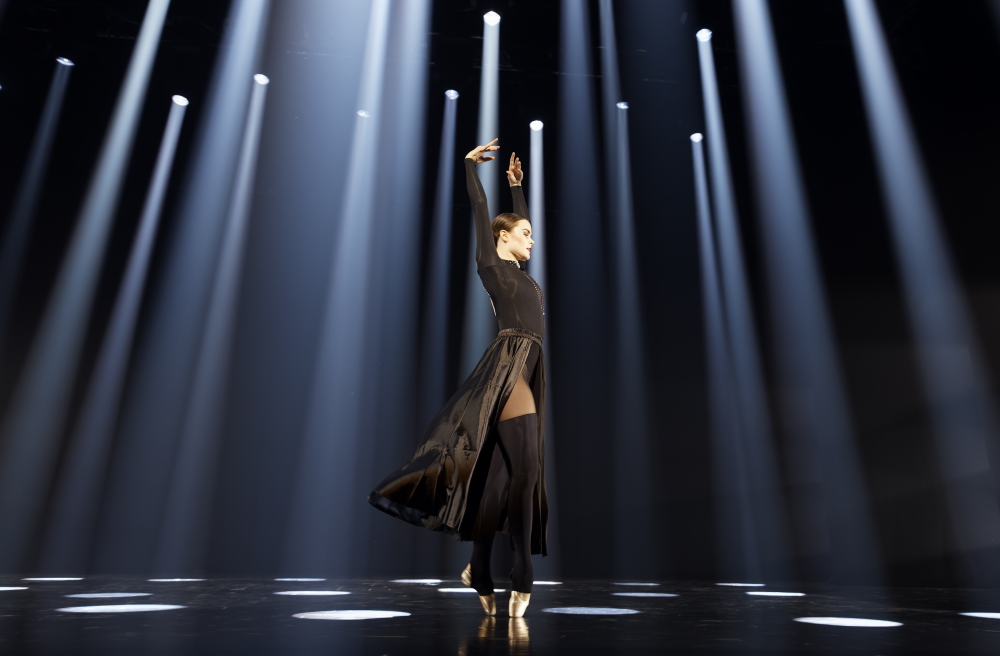Roland Greil
lighting designer / programmer / director
Germany
Adele ('25 World Tour'), Phil Collins ('Not Dead Yet'-Tour), Genesis ('The Last Domino'-Tour), Rammstein ('Stadium-Tour'), The Rolling Stones ('No Filter World Tour'). By working as a lighting designer/programmer/director for world famous acts as such Roland Greil has fullfilled his childhood day’s dream. But he took the hard way in the tough music-touring-business: from the bottom to the top by means of learning by doing from various experienced mentors.
Roland Greil
lighting designer / programmer / director
Germany
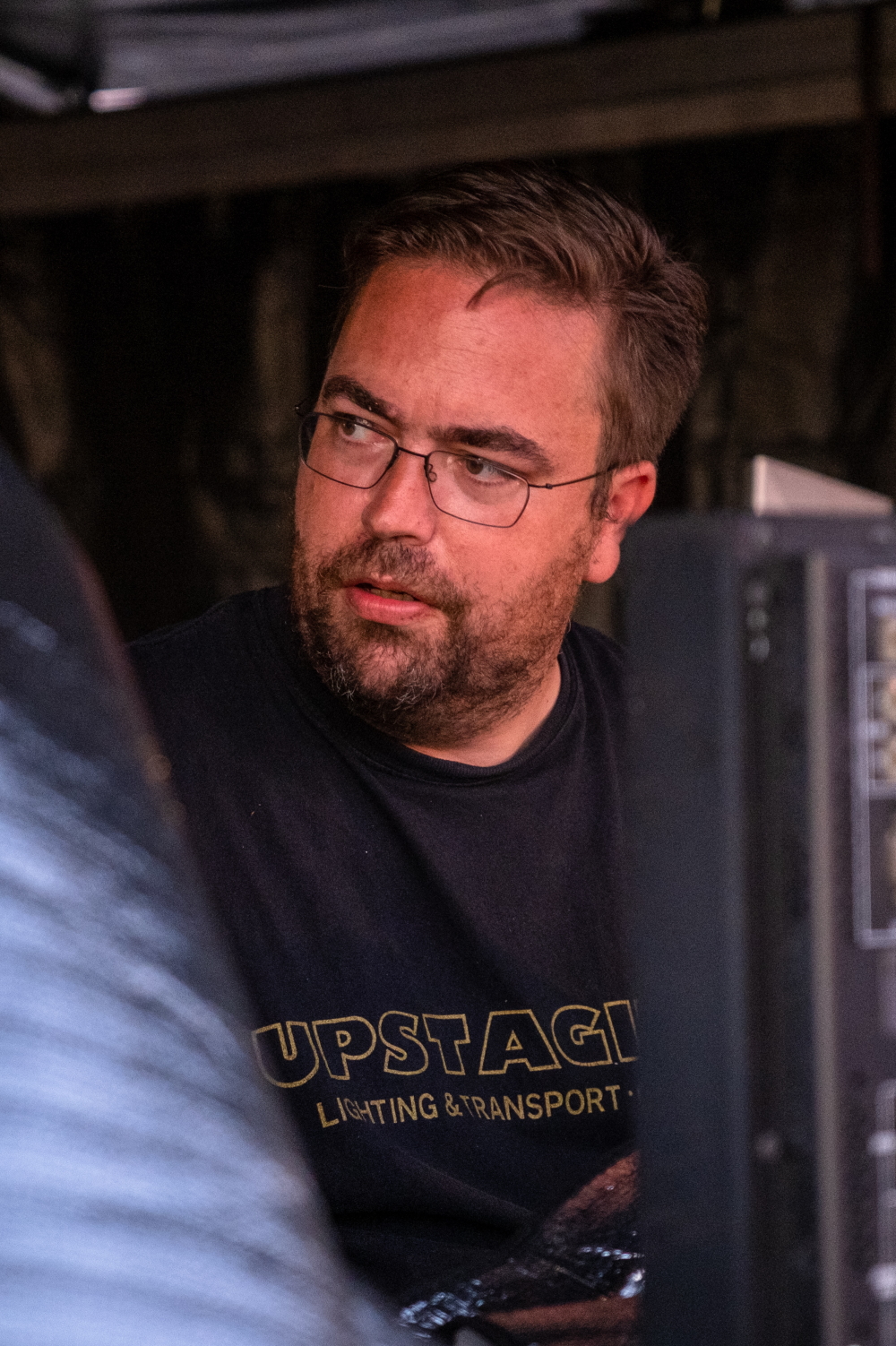
„At the age of seven or eight my father took me to a gig of a Country & Western band in a local club“, the native Bavarian (* 1981) mentions in an interview with eventelevator.de. Little Roland was so fascinated by the sound-engineer that he wanted to become one too once being grown-up. But things changed slightly during the course of time according to him: „At around eleven or twelve I built my own little lighting system and later rented such self-built-stuff out.“ Year by year his equipment got bigger and the company‘s name was passed around. Contacts to local companies resulted in working for them. So Roland Greil became a stagehand. At one point in time he found out that „sound-engineering is not creative enough, not my piece of cake. I enjoyed doing visual stuff and lighting more.“ After having finished school at the age of 19, the first steps on a long career were taken by rigging lights and later on programming them - being on tour worldwide up to 330 days per year!
„I was always lucky to get together with people who kind of accepted me as their protégé“, the man wearing glasses discerns with a sharp sight. „I learned a lot from them, because they taught me a lot.“ For that knowledge transfer („50% craft and 50% how to behave“) Roland Greil is thankful still. Such gratefulness is in tune with his personality that is said to be modest, discreet, professional and down-to-earth – a rarity in a „biz“ that is dominated by larger-than-life egos.
At one point in time the inquisitive German who has toured Great Britain with various acts met the experienced Englishmen Patrick Woodroffe and Adam Bassett. The acquaintance with the owners of WBD, one of the best-known and most prolific lighting design brands operating in the world of entertainment and architecture today (AC/DC, Cher, Michael Jackson, Elton John, Lady Gaga, The Rolling Stones, Tina Turner, Olympic Opening/Closing Ceremony 2012...), led to a close collaboration. Beside his jobs in the concert and touring industry, the author of the book 'Show Lighting' has designed and worked for television productions such as the Eurovision Song Contest, the biggest televised music show in the world.
His unique status is proven by the credentials on his homepage. To quote Dale Skjerseth: “Roland Greil is someone that you want on your team. Roland is well focused on his projects and knows what is needed to get the job done. He takes great direction from the Artist and works within the allocated budgets while always bringing the vision to the show.“ The AC/DC’s and The Rollling Stones‘ production director’s high opinion is shared by his colleague Howard Hopkins (production manager Genesis & Phil Collins): "Roland is one of the most dedicated, hardworking, creative person I have had the pleasure and experience of working with. In our business, things do not always go the way you plan them, and that is when Roland uses his experience and knowledge, to get the show on. He keeps a cool head in stressful situations. Roland is a team player, someone you can count on. I am very fortunate to have worked with him and will keep on working with him in the future."
When Roland Greil is not on the road (seven months per year usually), he lives in Munich with his wife Shannon and their daughter in sight of the mountains that he loves so much.
Interview August 2022
Spot on: showing stars in the correct light onstage
INTUITION/IMAGINATION
How does intuition present itself to you – in form of a suspicious impression, a spontaneous visualisation or whatever - maybe in dreams?
It could happen at any point of time. It always starts with a thought or an idea, which sparks the intuition and could be triggered by various impulses or inspirations.
Will any ideas be written down immediately and archived?
Normally not. They’re stored in my brain’s hard drive and will be written down a little further down the road, if they go somewhere.
Are great ideas based on intuition and do they reveal themselves in a kind of clear as well complete version that just has to be realized? Or is it endless trials and errors (after the first spark) that result in constant developments up until the final result?
For myself it could be any of the above. Sometimes ideas can be very clear and sometimes they need some time to develop and grow. (Not endless) trial and error could be a part of an idea’s journey as well.
What if there is a deadline, but no intuition? Does the first fuel the latter maybe?
Sometimes it has to, as we’re often working towards a deadline and creativity is nothing you can schedule on your calendar.
INSPIRATION
What inspires you and how do you stimulate this special form of imaginativeness?
There are many different things, which I think are part of my personal inspiration. Things like nature, architecture, art, music and the beauty of life itself.
How do you separate the good from the bad and which ideas are worthwhile to be explored further or whether one idea has the potential of being outstanding really?
To start with, there are no bad ideas. Just some worthwhile developing further and some possibly not so much. Even though the later ones could be a breeding ground for new ones. To which category an idea belongs, depends completely if they fit the purpose and greater all of the current project.
Has it to appeal to you primarily or is its commercial potential an essential factor?
I think, if they appeal to myself the later will follow, as I judge from a commercial factor as well.
Do you revisit old ideas or check what colleagues/competitors are up to at times?
I always go back to what I have done or more often to ideas/designs, which haven’t been realized so far. This could only be beneficial to improve the work on current projects/designs.
CREATIVITY
Which time/place/environment suits your creative work process the best (tranquillity or pressure) and which path do you take from theory/idea to creation?
For myself an inspiring and creative work space/surrounding is key to work efficiently and create magic. In such an environment the first ideas are born, which will be developed further first by myself only and down the road together with my outstanding team. It is like starting with a big brush and then step by step taking finer brushes to really tweak and detail the end product.
What is better in the realization process: speed and force creativity i.e. grasp the magic of the moment, or a slow, ripening process for implementation/elaboration?
In general a slow process is normally the way better option, but working in reality, we’re driven by schedules and time frames. Therefor even though we would love to have every time in the world to realize projects, we have learned to cope with the real world restraints.
If problems occur during creativity or one’s stuck even, how can these be solved?
It is key to be ready for problems at any stage of time, as it is not a question if problems occur, just when they will do so. For myself a “never give up” mentality is key to success, even in the roughest waters.
How important are self-doubt and criticism (by others) during such a process i.e. is it better to be creative on your own, only trust your own instincts, or in a team?
To be critical to yourself and listen to others is essential, as this will allow to create even better results. We’re all human and not perfect, but to collaborate and work with a great team, can only help to get closer to this elusive perfection.
Should a creative always remain true to him-/herself including taking risks & going against the flow or must one, for reasons of (commercial) survival, make concessions to the demands of the market, the wishes of clients and the audience’s expectations?
By definition design is an art form, that needs to technically work. Therefor our creativity is most of the times steered by a slight portion of commercial and technical reasons. Even though I normally start free thinking, all the physical and commercial demands/limits/points come to play early in the process.
How is innovation still possible if one has established a distinctive style and, just in case, is it good to be ahead of one’s time even one hazards not being understood?
I think every distinctive personal style develops over the time and this development should never stop. Personally I always strive for doing things better with each project. Naturally the own style/handwriting will develop over the years. Pushing boundaries is a fun part of my work and being creative.
When does the time come to end the creative process, to be content and set the final result free - or is it work-in-progress with an endless possibility of improvement?
In a perfect world, such processes could last forever. I think you could even tweak the perfect seeming end result and make it better, but in the real world there’s always a point of no return, when you finalize a project. For instance looking at a design for a concert, it is the opening night of the show or tour.
In case of failure or - worse - a creativity crisis how do you get out of such a hole?
Thanks god, I never experienced that so far, but if it would be the case, I would use my normal methods to recharge my batteries, as for instance spending time with my family, spending time in the mountains or race cars.
SUCCESS
Should/can one resist the temptation to recycle a ‘formula’ one’s successful with?
Yes, I think you should resist this temptation, as the key to leave a footprint is your own creativity/work and not copying others.
Is it desirable to create the ultimate/timeless work, but doesn’t “top of the ladder” bring up the question of “what’s next?” i.e. isn’t such a personal peak “the end”?
There’s no end for myself as I enjoy being creative and designing too much. Also I could never asses or judge what such a peak would be.
MY FAVORITE WORK:
It is nearly impossible to narrow it down to only one project, as I love diversity. Nevertheless the work I have done with and for Genesis and Rammstein together with my dear friend Patrick Woodroffe stand out to me personally, as with both shows we could go to town and really create something special, that suits them. Even though two completely different bands, it was awesome to go properly into detail while designing for them and collaborating with those outstanding artists.
